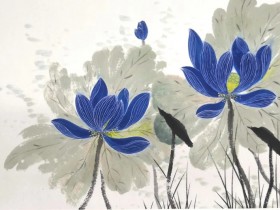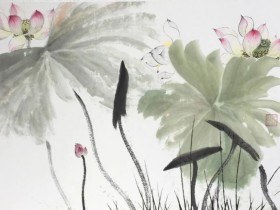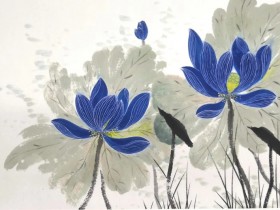Haworth & Lexon IP Law Newsletter
No.2, 2002 (Total:No.2) Aug 5th, 2002
Edited by Haworth & Lexon
"Haworth & Lexon Intellectual Property Law Newsletter" aims at introducing new cases and legal tendency in IP fields. All the comments do not mean the legal opinion of our firm and the firm does not have any legal liability for such comment. If you require any legal advice, we are willing to offer you considerate service. You can write E-mail to hl@hllawyers.com. If you have any interests and suggestions, or have any interests on some topics listed in this law newsletter, please contact with us.
Guidelines
★ Trademark "LG" infringement case has been decided by initial court, the claim of plaintiff was denied by Beijing Higher People's Court
★ Beijing Higher People's Court did not support the method of "Obtaining evidences by setting traps"
★ The court ordered Xiu Chao Corp to apologize and compensate for illegal announcement
★ China Music Copyright Society win a case in an initial court against a website owner
★ World Book Publication Company lost a case for breaching other's exclusive rights of publication in the initial court
★ In a infringement case Chongqing Higher People's Court confirmed the existence of infringement
★ The court in Hangzhou utilized the rule of "confession" to decide a patent infringement case
Trademark "LG" infringement case has been decided by initial court, the claim of plaintiff was denied by Beijing Higher People's Court
Beijing Higher People's Court made a judgment in the case of Beijing Lan Guang Elevator Company Vs. LG Electronic Inc. and LG Telecom Ltd for the cause of infringing exclusive right of its trademark on July 11th.
After hearing the case, the court ensured that there are obvious difference between the Logo of registered trademark "LG and Logo" owned by Lan Guang and that of LG Telecom Ltd's, which is used by LG Electronic Inc. Hence no identity or similarity is confirmed. Generally speaking, despite of the same word spelling both trademarks utilize different languages: one uses Chinese pinyin while the other uses English letters. Furthermore, the pronunciations are also different from each other. On the other hand, if we compare the two letters in registered trademark "LG and Logo" with "LG and Logo" that Lan Guang registered, the disparity looks more distinctive.
In the opinion of the court, the commodity with registered trademark involved in this case is elevator. As a result, the consumer of the elevator will pay more attention to the elevator that purchased including the trademark utilized in the elevator during the process of purchasing and installing such specific goods than common consumer. For the reason that there is no identity or similarity between the trademark "LG and Logo" owned by Lan Guang and the figures and words used in LG Telecom Ltd-owned trademark which is utilized by LG Electronics Inc, therefore, with due cautiousness the consumers will not be confused by the above 2 marks.
Beijing Higher People's Court did not support the method of "Obtaining evidences by setting traps"
On July 15th, Beijing Higher People's Court made a final judgment for the software copyright infringement case. The plaintiffs of this case are Beijing Peking Founder Group Corp. and Beijing Hong Lou Computer Science & Technology Institute while the defendants are Beijing Hitech ST Company as well as Beijing Hitech Tianli Ltd.
For having different opinions on the plaintiff's methods of obtaining evidences, the defendant appealed to Beijing Higher People's Court after first-instance judgment. After hearing, the court ensured the fact that the plaintiff assigned its employees to rent house and purchases laser machine it deputized. Moreover, its employees made request of buying pirated copy of Founder's software. In judge's opinion, such method of obtaining evidence violates the doctrine of justice, and once is popularized, it will be harmful to the normal market order. Whereas, it is not the sole way to take evidence, so the court will not approbate it.
The court ordered Xiu Chao Corp to apologize and compensate for illegal announcement
The plaintiff of this case is Shanghai Min Guang Coverlet Factory, while the defendant is Shanghai Chao Xiu Ltd (hereinafter referred to as Chao Xiu). The cause of this case is unfair competition.
The dispute derives from an announcement of Chao Xiu published on a vital position of a certain newspaper in Shanghai in September 2001. In this announcement, Chao Xiu stated that it was the patent owner of Jiu Kong quilt and Jiu Kong pulvinar that have good market prospective, and the similar goods that available in the market were all illegal infringement goods of imitation. Then Chao Xiu dispatched letters to more than 44 commercial companies. In these letters, Chao Xiu asked these companies to "pay attention to the purchasing sources of Jiu Kong quilt, Jiu Kong pulvinar as well as series of Jiu Kong antibacterial and warm-keeping material, in order to prevent the interference of litigations".
After hearing Shanghai No.1 Intermediate People's Court affirmed that the announcement of the defendant impaired other proprietors' legal rights and profits for fair play including Shanghai Min Guang Coverlet Factory, which result in the agents' temporary cease of selling the plaintiff's goods and the appearance of consumers' improper comment on the plaintiff's products. So the defendant had to burden the accordingly responsibilities for its malfeasance. As a result, Chao Xiu was ordered to stop the infringement and to publish proclamation to eliminate bad effect. Moreover, Chao Xiu was also asked to compensate for plaintiff's financial loss RMB 100,000.
China Music Copyright Society win a case in an initial court against a website owner
China Music Copyright Society is the plaintiff of this case, is entrusted by Leilei to manage the conclusive rights of several pieces of musical work, including "Desire", "The youth will not speak of melody" and "Good guy will enjoy safeness for lifetime". The above rights contain the right of public performance, right of broadcasting, right of recording and publication, along with the right of communication via Internet. The defendant, a technology company in Shenzhen, uploaded "Desire", "The youth will not speak of melody" and "Good guy will enjoy safeness for lifetime" to the website as the mobile phone's ring music for the customers.
After hearing the case the court confirmed the following facts: the defendant disseminated musical works with digital form through Internet without the plaintiff's permission; its purpose is to gain profit. Although such mode of dissemination differs from "recording and publication in public" and "the mode of playing" which are set forth in Copyright Law, essentially it is to enforce the function of disseminating the work in public. Consequently, the actions of the defendant, which is one mode of utilizing the musical work, infringed utilizing rights and the right of requiring profits of the copyright owner. The defendant should take the responsibility of infringement. Hence the judge made a decision that the defendant compensate for the plaintiff's financial loss RMB 15,000 and burden the litigation fee of this case.
Annotation:
"Legal opinions by the Supreme Court's Count of Several Issues Relating to the Application of Law in Adjudication of Cases of Copyright Disputers on Computer Network" came into force since Dec 21st, 2000. In this judicial interpretation, it affirms that disseminating work through Internet is also a kind of modes of utilizing work provided in Copyright Law. The regarding copyright owner has right to make use of the work or permit others to use the work. Meanwhile, the copyright owner also has the right to gaining profits.
After amendment on Oct 27th, 2001, Copyright Law of China provides that the copyright owner has the right of communication through Internet. In another word, the owner has the right to offer work publicly via wired or wireless method, in order that the public can acquire the work at the right time and location they choose.
World Book Publication Company lost a case for breaching other's exclusive rights of publication in the initial court
The plaintiff of this case is Shanghai Publishing House of Science & Technology Literature, the defendant is World Book Publication Company. The cause of this case is copyright infringement.
It is stated by the plaintiff that it has the conclusive copyright of "Shanghai new exercises of text book, version A and version B regarding chemistry for Grade 9" (hereinafter referred to as "version A and version B"). In September 2001, the plaintiff found that "essence of Shanghai new exercises of text book regarding chemistry for Grade 9"(hereinafter referred to as "essence"), which is published by Shanghai World Book Publication Company and Haerbin Publishing House, had many identities in content with "version A and version B".
During the hearing, both parties agree on the following facts: 7 persons including Chen were the authors of the concerning 2 books, and "essence" used the contents of "version A and version B"; Lu, who was employed by the above 2 companies successively, signed the publication contract in "version A and version B" and "essence" as the representative of the 2 parties respectively.
The judgment confirms: for the reason that the first 6 chapters of "essence" utilized the according chapters of "version A and version B", the salableness of the plaintiff's book was seriously affected. Meanwhile, conclusive publication right is a right that excluded others' rights. Lu had signed the publication contract of "version A and version B" as the representative of plaintiff before sign the publication contract of "essence" as the defendant's representative. However, World Book Publication Company still confirmed Lu's behavior of signing contract under such conditions to publish a book whose most contents were identical with other's book. From this point of view, its subjective malice is obvious. On the other hand, Hawebin Publishing House provided the publication number, and signed as the other punisher of this book.
Therefore, the behaviors of the 2 defendants are the infringement actions against the plaintiff's special publication right. Accordingly the court made the first-instance judgment that the defendant, Shanghai World Book Publication Company as well as Haerbin Publishing House, had infringed the plaintiff's copyright.
In an infringement case relating to medical company Chongqing Higher People's Court confirmed the initial judgment
This case is derived from the "Q & A" of 'Xenical website of Shanghai Roche Pharmaceutical Ltd. In this column, Roche made comparisons between 'Xenical produced by Roche and Qumei which is manufactured by Taiji Group Inc, concerning the functions, mechanisms as well as respect of safety. Moreover, the company also compared the operation mechanism of 2 losing weight medicines in an internal training prophet. After second hearing, Chongqing Higher People's Court confirmed that the Shanghai Roche Pharmaceutical Ltd infringed the commercial reputation of Sichuan Taiji Group Inc as well as the commodity credit of Qumei. Therefore, the court confirmed the judgment of Chongqing No.1 Intermediate Court made in November 2001. In the above judgment, the court ordered the defendant to compensate for 2 RMB 500,000, which is the maximum amount of statutory compensation fee.
The court in Hangzhou utilized the rule of "confession" to decide a patent infringement case
The plaintiff of this case is Jiaxin Zhong Lian Communication Facilities Ltd, the exclusive licensee of a certain patent. The defendant of this case is a person with individual business. The plaintiff lodge a case for the reason that the defendant infringed his patent right. Then in the defense, the defendant admitted that he had manufactured and sold a few products involving patent. Nevertheless, during the hearing, the defendant reversed the behavior of confession. Furthermore, he asked the court to reject the complaint by contending that the defense, which was not comply with the truth, was written by his employee.
The court confirmed that the defendant had confessed the actions of manufacturing and selling infringement products in the defense, along with other evidence such as the advertisement concerning defendant's products which proving the above. It is the defendant's true intent with his personal submission of defense to the court and his own signature. Even if the defendant reversed the confession in the defense, there is no evidence to prove opposite situation. Pursuant to "Legal Opinions On Evidences of Civil Litigation by the Supreme People's Court", the court confirms unfavorable fact that the defendant admitted in the defense, if there is no sufficient evidence to reverse the above facts. Therefore, the court made a judgment that the defendant infringed the plaintiff's patent, and should compensate for it.



